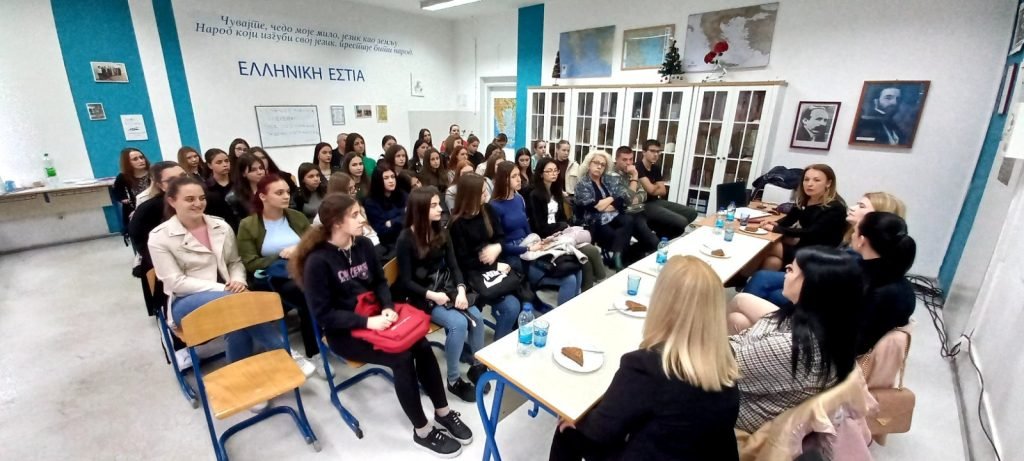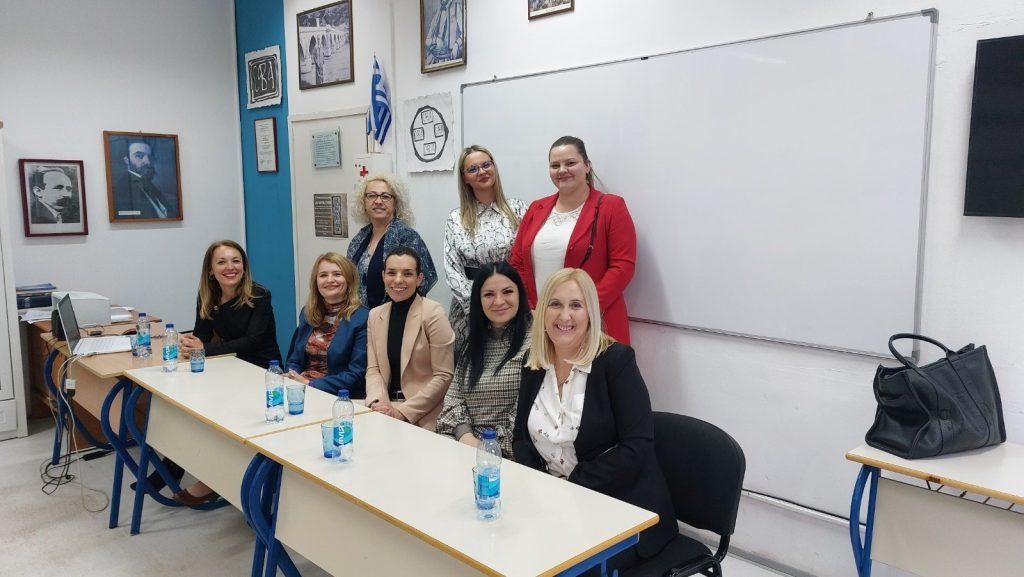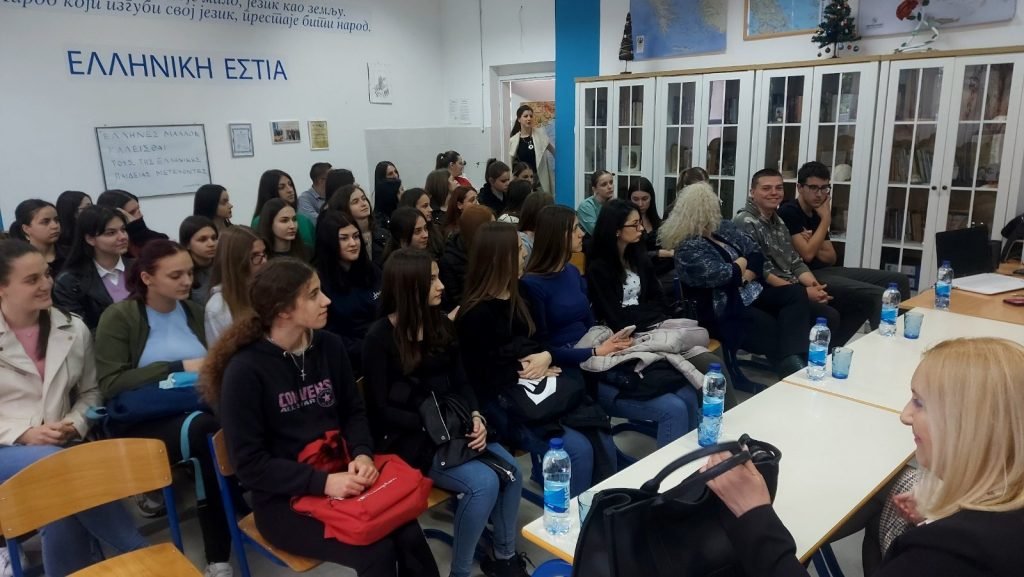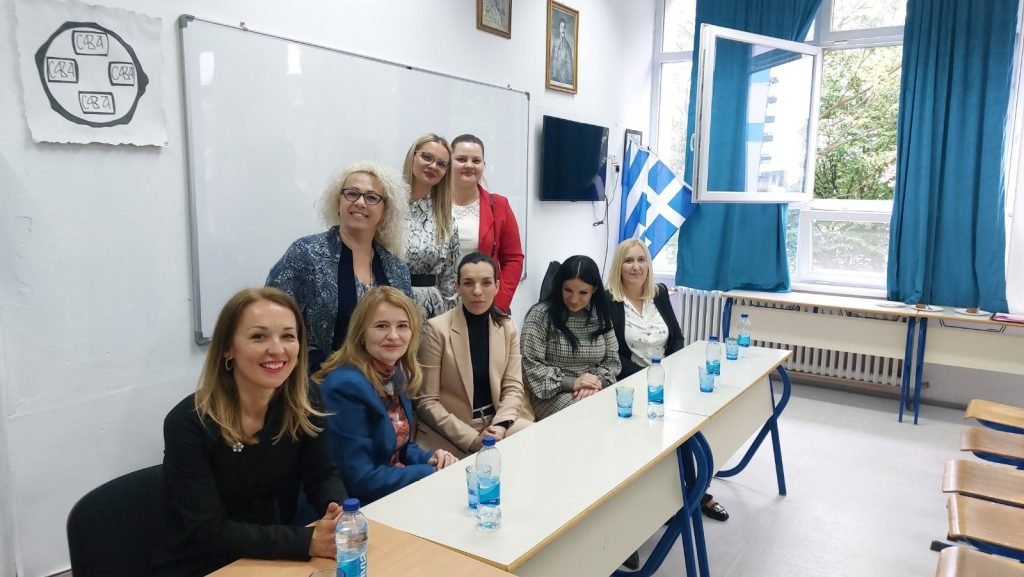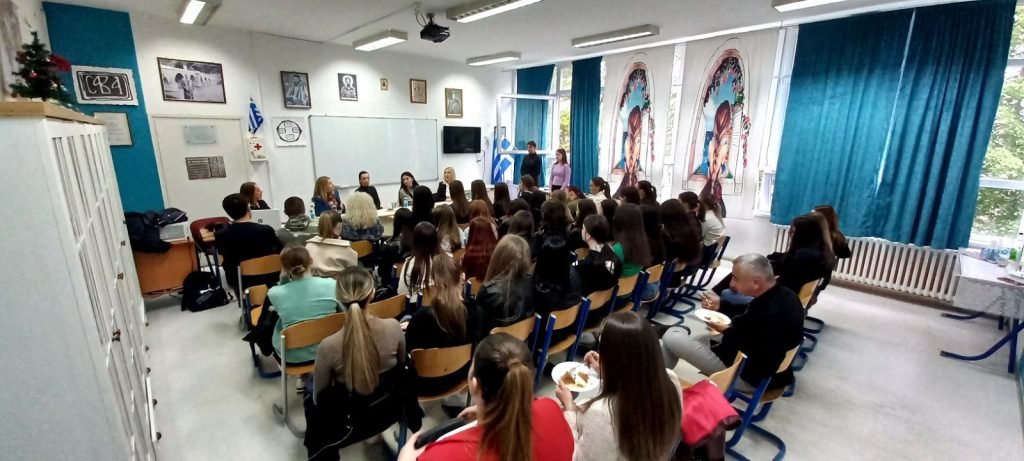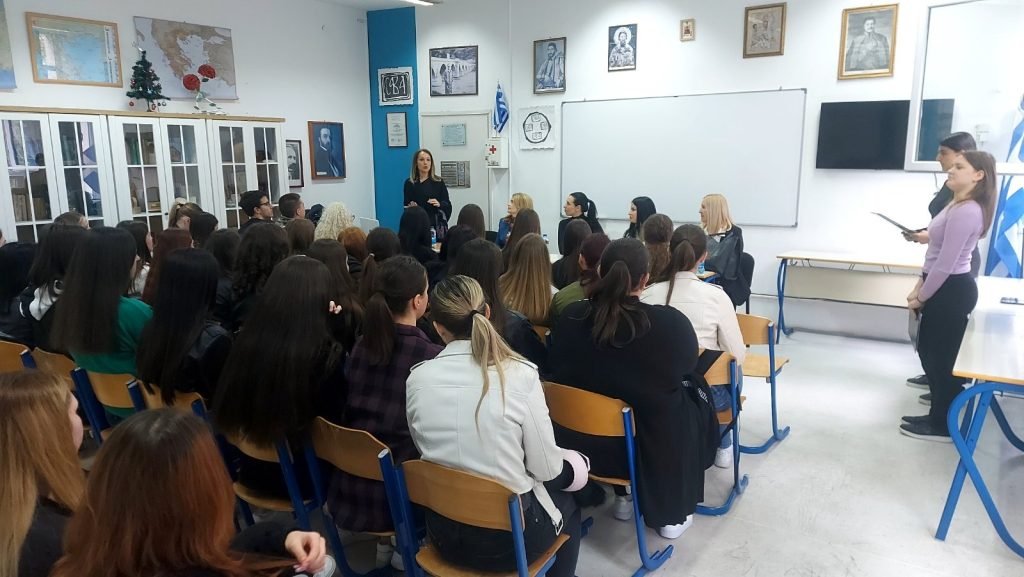Paragraf Lex je 5. juna 2024. godine organizovao savjetovanje na temu “Praktična implementacija izmjena i dopuna Zakona o parničnom postupku, Zakona o vanparničnom postupku i Porodičnog zakona”.
U Konjicu je danas počela dvodnevna konferencija sa advokatima iz BiH, članovima Koalicije medijskih advokata. Konferencija se održava u sklopu projekta “Pravo i mediji – zajedno u zaštiti slobode izražavanja”, koji Vijeće za štampu i online medije u BiH realizira uz pomoć UNESCO/Global Media Defence Fund.

Cilj projekta jeste primjena samoregulacijskog mehanizma kao sredstva za smanjenje tužbi za klevetu s ciljem unapređenja ugrožene slobode govora u BiH.
Po prvi put, Bosna i Hercegovina dobit će Koaliciju medijskih advokata, a njeni članovi potpisat će Deklaraciju o formiranju Koalicije i njenim ciljevima.

Na konferenciji će biti predstavljena analiza slučajeva tužbi za klevetu, pripremljen prijedlog predmeta za pokretanje strateške parnice pred Evropskim sudom za ljudska prava uz objašnjenje zašto bi ova parnica bila od koristi medijskoj zajednici.
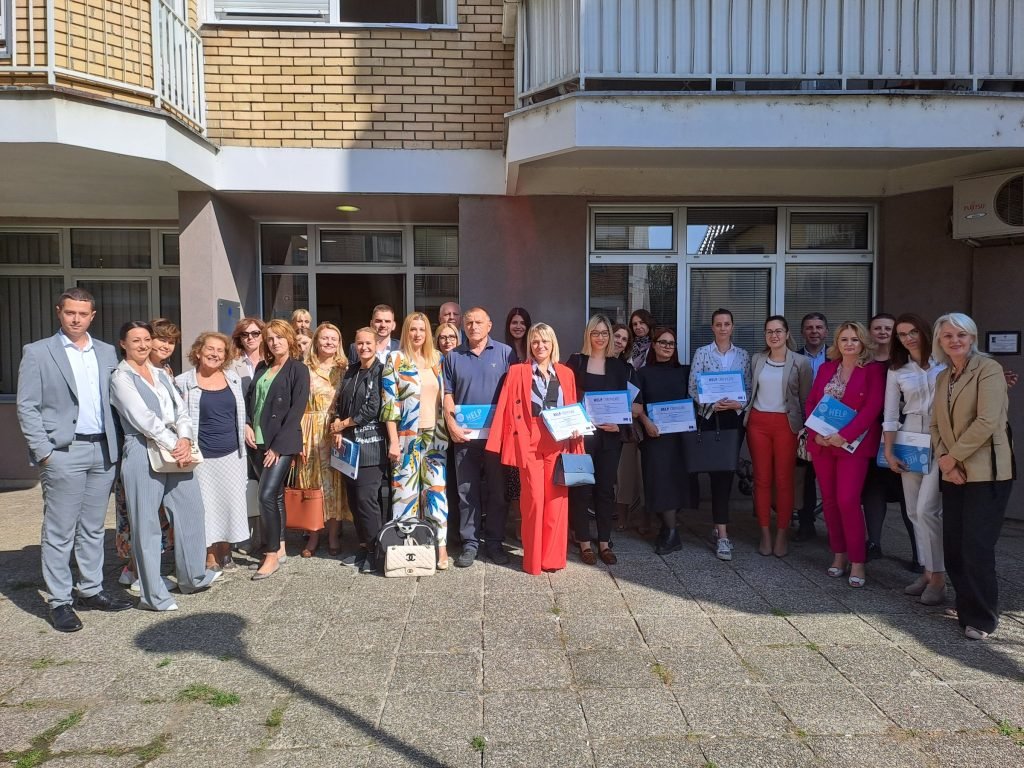
On 05 October, the HELP course on Family Law was launched for some 30 lawyers from Bosnia and Hercegovina during an in-person event organised in Banja Luka by the HRTF supported “HELP in the Western Balkans” project.
The event was addressed by Irena PUZIC, the Head of the Training Unit of the Bar Association of Republika Srpska and a member of the HELP Consultative Board. Ms. Puzic presented the newly established cooperation in between the Bar Association of Republika Srpska and the Council of Europe emphasising the importance of HELP courses for the work of the lawyers and other legal professionals and announcing the future cooperation with the HELP in the Western Balkans project through the implementation of many other HELP courses.
Jasminka PERUNICIC ALLEN, Project Coordinator, CoE, introduced the participants with the HELP methodology and the main aim of the project. The recently certified HELP tutors, Maja VRBLJANAC and Stefan MOCEVIC, presented the HELP course on Family Law and the additional materials from the domestic legislation which will be placed on the platform for the participants through the implementation of the course in the following weeks. The fruitful discussion in between the tutors and the participants marked this event revealing a busy e-learning time ahead.
The HELP course on Family Law provides a comprehensive overview of International and European family law related standards, case-law and good practices. It is the first HELP course to provide a single resource on the topic, covering the extensive CoE standards and EU law, as well as soft-law instruments on the matter. It integrates training materials previously developed by the CoE and is complementary to the HELP courses on child-friendly justice and the other one on violence against women (both already available in several languages on the HELP e-learning platform).
The HELP in the Western Project is financed by the Human Rights Trust Fund. The main partners of the Project are the National training institutions and Bar associations from six beneficiaries in the Western Balkans and members of the HELP network: Albania, Bosnia and Hercegovina, Kosovo*, Montenegro, North Macedonia and Serbia.
***
The HELP online course on Family Law has a duration of 10 hours and is accessible also in self-learning (open, self-paced) format at this link. It is available in 13 languages, among which English. Participants who complete all the modules can generate electronic Statements of Accomplishment in proof of their acquired knowledge and skills.
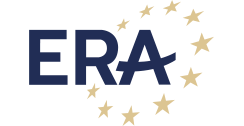
Representatives of judicial training institutions and bar associations from the Western Balkan countries visited ERA from 8 to 12 May to discuss the training needs and expectations of legal professionals in preparation for their future accession to the EU.
Helping legal practitioners from the Western Balkans to prepare for EU membership is one of the pillars of ERA’s current development strategy.
The visit provided a forum for the 26 high-level participants to exchange experiences, needs and concerns regarding legal training at country-specific level and in working groups focused on the judiciary and the bar respectively.
Legal training in the Western Balkan countries faces a multitude of challenges. John Coughlan, Communications Director of ERA, who co-hosted the working group for representatives of the bar associations, said: “Many bars suffer from a lack of training capacity while others are in the process of reforming their systems for both initial and continuing training.”
Also, judges and prosecutors from this region encounter difficulties. Viktor Vadász, ERA’s Programme Director, said “Many external training providers are visible in the Western Balkans, offering participation in a wide range of activities for judges and prosecutors; however, representatives of the national institutions were able to identify the legal topics for which their training needs are still unmet. They cited, among others, practice-oriented seminars on CJEU case law and trainings on digital technology in the field of criminal justice.”
Participants also had the opportunity to witness ERA’s work in action by following parts of a conference on anti-money laundering.
Another aim was to get a closer insight into the workings of the European Union. Representatives of the European Commission discussed with the group the relationship between the candidate and potential candidate Western Balkan countries and the EU. According to Marc Jorna, Senior Expert at the European Commission’s Directorate General for Enlargement: since the invasion of Russia in Ukraine, there is a new dynamic in the EU enlargement process.” For the countries’ application process, he said: “The rule of law remains at the basis in your road to the EU. Judicial training institutions will have a key role to play in this process.”
Anne Calteux, Head of the Commission Representation in Luxembourg, emphasised the importance of mutual strategic interests because “The current geopolitical context has triggered a new momentum. The Western Balkans contribute to the reflection on the future of our continent.”
Wojciech Postulski, Policy Officer at DG Justice, accompanied the group.
The following day, the group visited the European Court of Justice where they met with Marko Illešič, the Slovenian Judge on the Court of Justice.
Networking took place not only in the sessions but also during the varied social programme. “This is very beneficial for the cooperation within our region and between the different legal professions”, said Irena Puzić-Obradović, President of the Training Commission of the Bar of Republika Srpska in Bosnia-Herzegovina.
One highlight was the concert at the Philharmonie Luxembourg on Europe Day, where the European Academic Orchestra and the Chœur de Chambre de Luxembourg performed Beethoven’s Symphonie N° 9.
The visit was considered a success by all. Arben Murtezić, Director of the Centre fo Judicial and Prosecutorial Training of the Federation of Bosnia-Herzegovina, said: “I’m impressed by the hospitality and the dedication of the management who are so committed to the details of the organisation. This is just the beginning of future cooperation possibilities to come.”
Juče su gosti Ekonomske škole Doboj bile četiri žene advokati iz našeg grada, Svjetlana Lazić, Irena Puzić-Obradović, Jelena Stokić i Tamara Savić.
Naše gošće su kroz razgovor sa učenicima drugog i trećeg razreda koji pohađaju smjer poslovno-pravni tehničar ispričale zašto su se odlučile za ovo zanimanje, da li je teško biti žena advokat i da li uspjevaju da usaglase svoje privatne i poslovne obaveze.
Aktivnost je organizovana pod mentorstvom profesorice Suzane Raković.
Moderatori ove aktivnosti bile su učenice Valentina Šolaja i Marija Cvijanović.
Zahvaljujemo se našim gošćama na posjeti putem koje su odgovorile na brojna pitanja naših učenika i približile im ovu profesiju.
